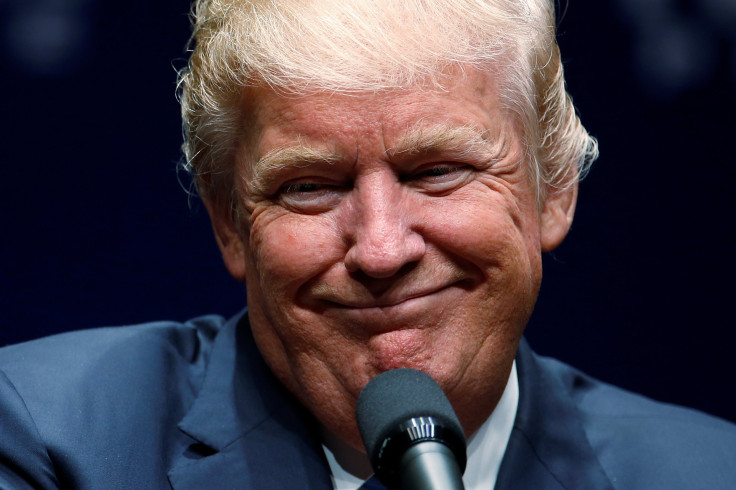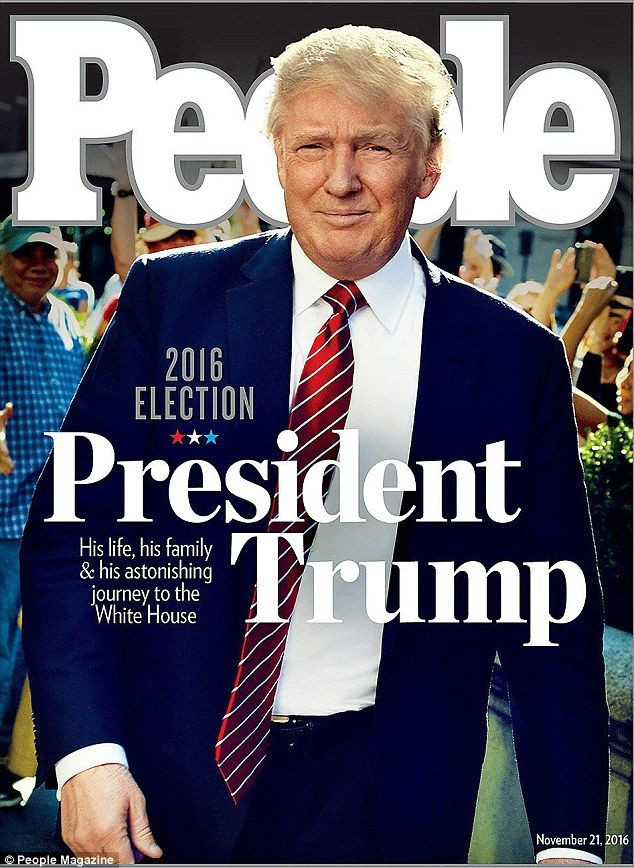Donald Trump: People Magazine Reports Sexual Assault Accusation, Then Fawns Over President Elect [Opinion]

Just a few days after Donald Trump was elected president, People, which has the largest audience of any American magazine, began normalizing our reality-star president-elect despite their promises to stand by their former reporter who accused Trump of sexual assault. People has covered Trump for many years and contributed to his fame through their consistent coverage of the Apprentice and Trump’s personal and financial life. Nonetheless, from October 12 until the election, the magazine had the courage to condemn Trump and support their employee. Their current fawning coverage, however, which is drawing a backlash from celebrities, sends an unfortunate message that money is valued over morals —and access to a powerful man is more important than sexual assault.
I was hired as an intern at People magazine in the fall of 2004, the year that The Apprentice first aired. My cubicle was situated directly outside of the office of Natasha Stoynoff — the former People magazine reporter who bravely told her story about being sexually assaulted by Trump while she was on assignment for People in 2005. This story was first published on People.com on October 12, 2016, and in the printed magazine later that week. In 2011, while I was freelancing for People. my friend Natasha confided in me about the attack, but until now I have chosen to stay silent since this is her story. People's current coverage of Trump, however, has led me to stand up for Natasha and all women who have experienced sexual assault. We must make clear that being the president-elect of the United States of America does not excuse his behavior.
Leading up to the election, People showed integrity by strongly supporting Natasha. After the initial People.com story had run its course, follow-up stories going into further detail, including Natasha’s response to Trump’s denial of the accusations and testimony from others corroborating her story, covered the website. Just four days before the election, People.com featured video of Managing Editor Jess Cagle interviewing Natasha, asking her to explain why she came forward with her story and her response to Trump's offensive comments about her accusations. Both Cagle and Larry Hackett, who was managing editor when Natasha was assaulted, publicly expressed their support for her. In a statement about why they printed the story, Cagle noted, “Ms. Stoynoff is a remarkable, ethical, honest and patriotic woman, and she has shared her story of being physically attacked by Donald Trump in 2005 because she felt it was her duty to make the public aware. To assign any other motive is a disgusting, pathetic attempt to victimize her again. We stand steadfastly by her.” The statement was accompanied by video of Senior Editor Charlotte Triggs explaining Natasha’s story with great empathy, noting that it was a “terrible thing that happened to her.” Triggs also made appearances on multiple television shows to tell Natasha’s story. On Nov. 4, several People magazine staffers posted photos of themselves with Natasha on Facebook with captions including “Team Natasha Stoynoff.”
The day after Trump’s election, however, Triggs authored a story on People.com entitled, “My Front-Row Seat to History: PEOPLE Senior Editor Charlotte Triggs Watches Trump Win the Presidency,” featuring a photo of her cozied up to the president-elect. One week, Triggs was on camera talking about Natasha’s “terrible” experience, and the next week she was celebrating with Natasha’s alleged assaulter.
Puff pieces quickly followed, including “27 Photos of Ivanka Trump and Her Family That Are Way Too Cute,” “Melania Trump’s First Lady Style: See Her Best Moments on the Campaign Trail,” and a celebratory election story with the title “He’s Hired !” in the caption. In response to backlash over this laudatory coverage, People issued a statement on November 10: “Donald Trump’s win is a history-making news event that warranted the cover of the magazine. The story is not a celebration or an endorsement and we continue to stand by Natasha Stoynoff.”
But the claim that Trump’s election was being covered as a news event and the coverage was “not a celebration” willfully ignores the posture of these puff pieces. This flattering coverage of their employee’s alleged attacker suggests that People truly cares little about sexual assault, even when the victim is their own employee who was assaulted on the job.

By attempting to make Trump cutesy and consumable again, People casts doubt on the claim that they would never have published Stoynoff’s story in 2005 if they had known of the assault at the time. The former magazine editor said he would have “killed the story that Stoynoff had gone to Palm Beach to report.” In a conversation I had with Natasha two weeks ago, she said she had the impression that the current editors felt the same way. If they claim that had they only known then what they know now, they would not have published the story of Trump’s marital bliss, which was revealed to be so obviously false by his behavior toward their reporter, what is to explain the magazine’s current adoration of Trump and his family?
As Cagle so emphatically pointed out, Natasha did not have any ulterior motive for telling her story. But what about People's motive? Cagle admitted in an interview that “Natasha was not, frankly, eager to tell this story.” Cagle, on the other hand, was “happy to run it. I was thrilled to run it.” Why? Their about-face gives the distressing appearance that it was to bait clicks and to sell issues, exploiting their own employee’s assault for profit.
The People staff are not novices—they know what will draw readers. Now that the story has been fully monetized and Trump is elevated to the presidency, the magazine wasted no time in abandoning their reporter to wring sales out of adoring coverage of her assaulter. As one former People writer presciently predicted on Facebook following Trump’s victory: “They will get cozy with Melania and highlight her fashion. They will have our annual fawning Presidential Christmas interview. They will admire all things Ivanka. These things will not change… It's all about money.”
By publicly lauding their employee’s attacker, People reinforced the dynamic it was supposedly fighting against by publishing Natasha’s accusations. As Natasha said in her own words, she did not come out with her story sooner because of fear that “a famous, powerful, wealthy man could and would discredit and destroy” her. In an interview with CNN about Natasha’s experience, Triggs said of Trump, “At the time he was a hugely powerful TV star and business mogul and she knew that if she were to come forward with unflattering allegations against him that she would be in for it herself and he would retaliate against her.”
If Trump’s status then was too powerful to risk retaliation, we can only imagine how his victims feel now, as he is about to become the most powerful person in the world. For People to retain the integrity they built by supporting Natasha, they need to rethink their current editorial approach to covering Trump. By failing to do so, they are glorifying a sexual assailant, sending the message that some men are in fact too powerful to stand up to, and encouraging other victims of sexual assault to remain silent.
Díaz is a Postdoctoral Fellow at UCLA’s Bunche Center for African American Studies and Chicano Studies Research Center. She is also Assistant Professor of Communications, Cal State Fullerton. Her research looks at issues of race and gender in celebrity media. She is a former intern and freelance reporter for People magazine.
© Copyright IBTimes 2025. All rights reserved.





















